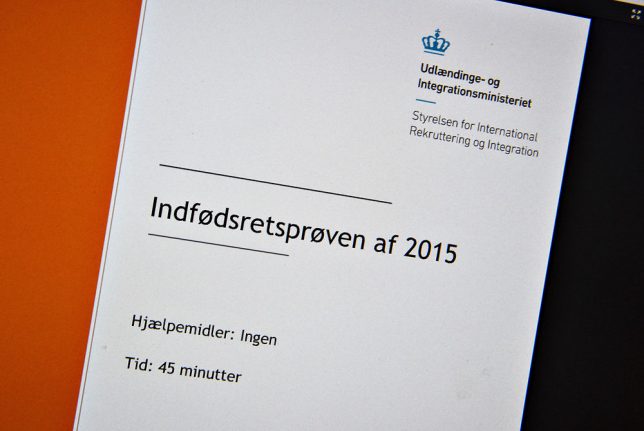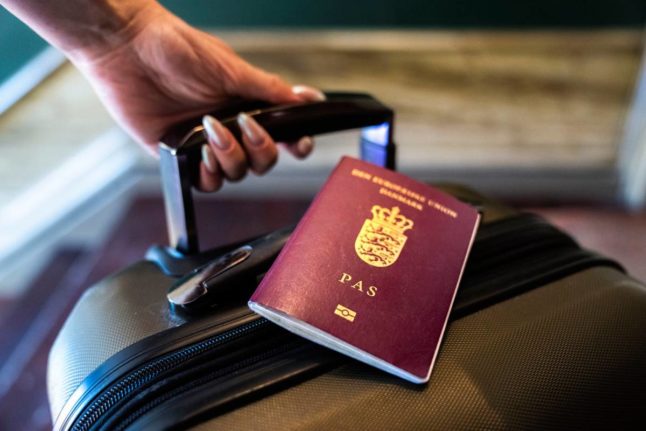At a 52.77 percent pass rate, the success ratio for those hoping to become Danish nationals was slightly lower than the previous test in November 2018, which saw 53.48 percent pass.
A total of 3,502 people took the June 6th test at 52 language centres across Denmark, according to figures released by the Ministry of Immigration and Integration.
Since 2015, the Danish citizenship test (indfødsretsprøven), held twice annually, has consisted of 40 multiple choice questions on Danish culture, history and society. The pass mark is 32.
The pass rate for the test, for which the registration fee is currently 783 kroner, generally hovers around the 50 percent mark.
READ ALSO:
- Applying for Danish citizenship: the process explained
- Quick quiz: Can you pass these Danish citizenship test questions?
- Quick quiz: Can you answer ten more Danish citizenship test questions?
Passing the test is a prerequisite for all applicants for Danish citizenship. The content and difficulty level of the exam is monitored by the immigration ministry’s International Recruitment and Integration Board (Styrelsen for International Rekruttering og Integration, SIRI).
“It makes me very happy to see that foreigners who live here in Denmark want to become Danish citizens. Congratulations to those who passed the test – they are now one step closer to becoming citizens,” Minister for Immigration and Integration Mattias Tesfaye said in a ministry press release.
“They have shown the will and motivation to learn about our culture, history and democratic system. Citizenship brings with it many new rights, but also an obligation to protect Denmark and help to build our lovely little country,” Tesfaye added.
The next citizenship test will take place on November 27th.
READ ALSO:



 Please whitelist us to continue reading.
Please whitelist us to continue reading.
Member comments